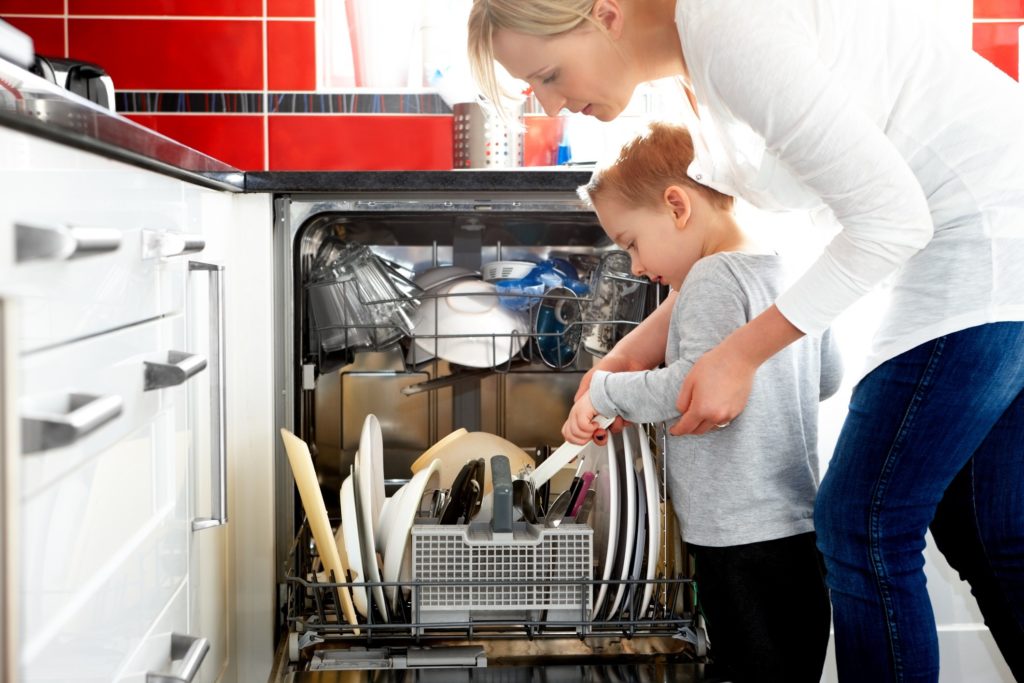If you were quizzed on how to load the dishwasher, would you pass with flying colors, fail miserably, or somewhere in between? Most people probably fall into the “in between” category – knowing just enough to get the dishes clean with few if any mishaps.
Yet loading a dishwasher incorrectly can make the appliance less efficient and result in damaged, filmy, and even continuously dirty dishes, utensils, pots, and pans. Read on to learn how to load your dishwasher the right way once and for all.
Skip the pre-rinse.
Unless the appliance is quite old and requires a pre-rinse, you’re wasting water and energy by doing so. Today’s detergents are formulated to cling to food and wash it away. Simply scrape large pieces of food into the trash or garbage disposal, load the dishes, and start the wash cycle.
Arrange plates in multiple directions
So they’re all facing the center where soap and sprayers can effectively reach them. Alternate between large and small to improve water flow.
Place cutting boards, platters and casserole dishes
At the back or sides of the bottom rack so they don’t block detergent from reaching any of the contents.
Place delicate items like glasses and cups
On the top rack where they will receive a gentler (yet still thorough) clean and avoid being damaged.
Resist the urge to place glassware over the lines
Of the top rack. Placing more delicate drinkware between the rack lines prevents chipping and cracking.
Place large plastic and metal utensils
Flat on the top rack of the dishwasher. If loaded into the utensil basket, they can block the spray of water to the rest of the dishes. Avoid placing wooden utensils and sharp knives in the dishwasher as the heat can dull and degrade them over time.
Place forks and spoons in varying positions in the utensil basket. By placing some with handles facing up and some down, they’ll avoid nesting and emerge cleaner for that small extra effort.
If you wash your silver and stainless steel utensils in the dishwasher, keep them far away from each other. Otherwise, they can collide and produce a chemical reaction that can dent the silver.
And whatever you do, don’t overfill the dishwasher. While it’s good to run full loads to avoid wasting water and energy, an overcrowded dishwasher will prevent water and soap from circulating freely and result in mediocre results.
Loading a dishwasher properly is one piece of the puzzle. So is having an ample supply of hot water. Which means that if you’re unhappy with the results, the problem might not be your method of loading. If so, that’s when it’s time to check other sources of hot water in your home to see how the supply is holding up. If it’s not what it used to, contact Messmer Mechanical for a solution guaranteed to get the problem fixed.





